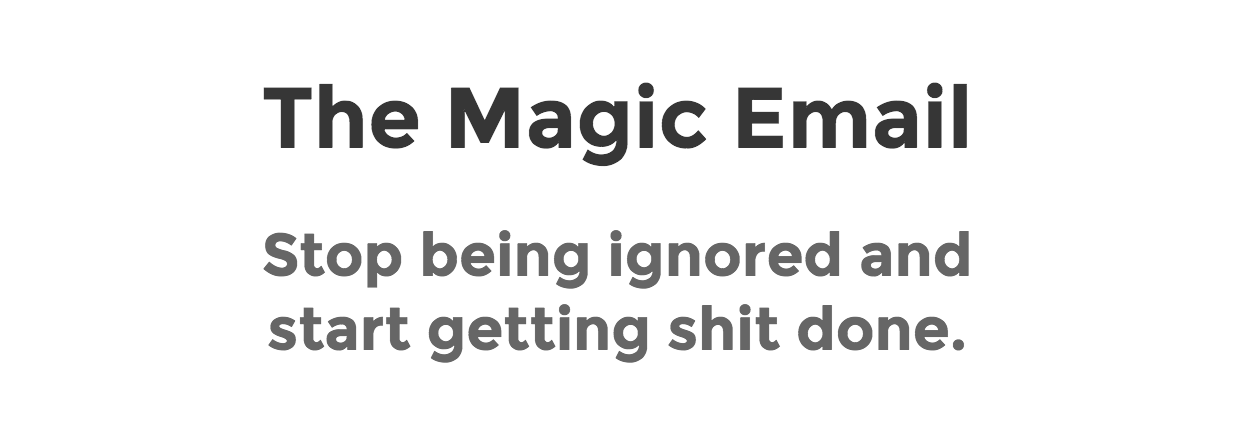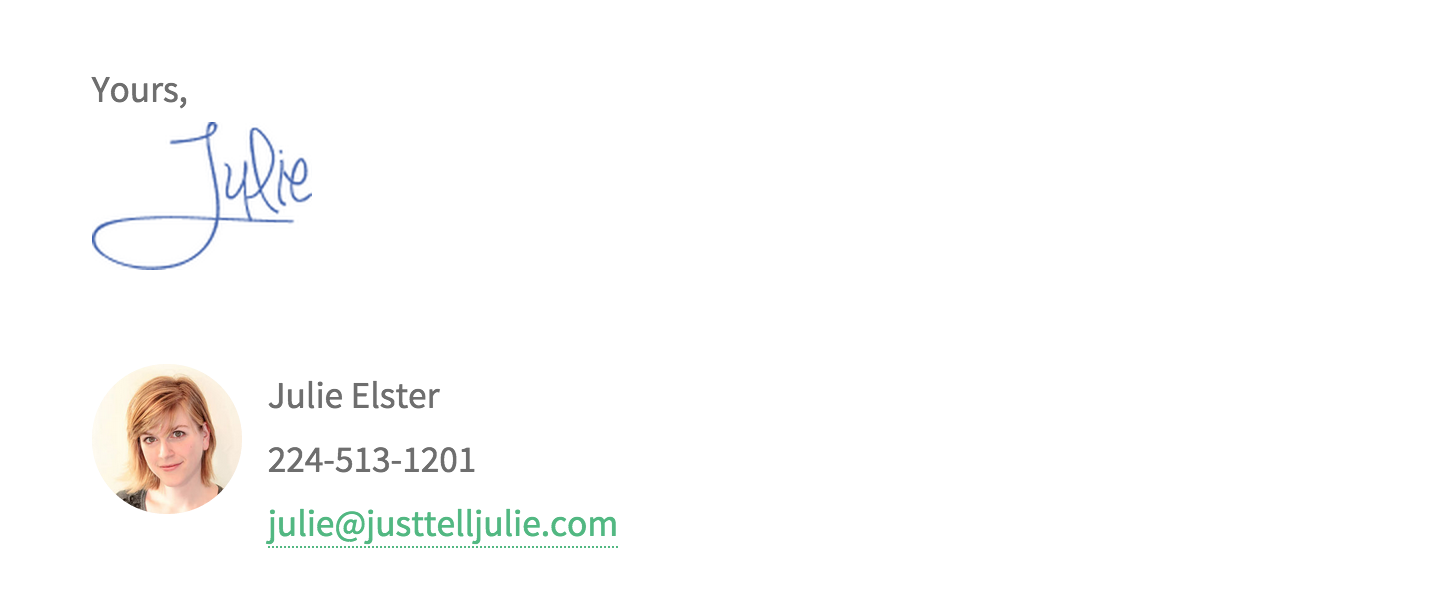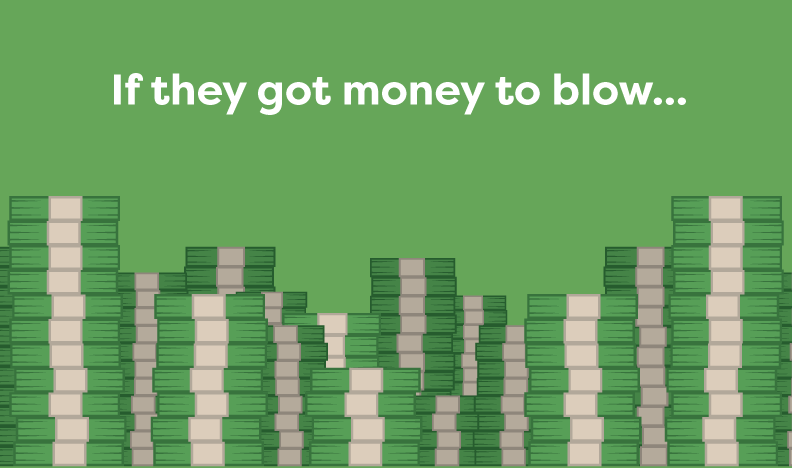
The amount of hats a freelancer has to wear is enough to open up a hat shop. Nay, a hat franchise.
A freelance web developer is also a receptionist and a marketer. A freelance writer is also an office manager and a salesman. These roles are not in the job description, but you’ll soon find out that when it comes to freelancing, the job description is a bit vague.
Use the following hacks to accomplish some of those pesky duties you didn’t see in the fine print.
Bringing Up The Budget
Like politics, religion and post-2002 Adam Sandler movies, money often makes for a very uncomfortable conversation topic. Broaching the subject can trip many freelancers up, but it’s something that must be established before anyone can move forward.
The project budget should be discussed during your first substantial conversation with the client.
First, ask about the client’s business.
Then ask about the problems they need solving.
Then tell them exactly how you are going to solve their problems and improve their business.
Then ballpark the cost.
By first explaining to the client how you’re going to solve their problem and then discussing payment, you’re making it much harder for the client to walk away or balk at the estimate. At this point in the conversation the client is already envisioning what their business will look like with your help. The budget is now secondary to the results.
How to Deal With Unresponsive Clients

If a client has gone AWOL after expressing interest in your services or initiating a project, break out your wand and cast The Magic Email. Composed by web developer Kurt Elster, The Magic Email is a supernatural collection of words that, when written in the correct order, can revive cold leads and dead deals.
I recommend reading Elster’s website for a more in-depth exploration of what this email is capable of, but if you want to save yourself some time, here is The Magic Email:
Since I have not heard from you on this, I have to assume your priorities have changed.
It’s up to you how to frame this sentence. For example, you could write:
Because I haven’t heard back from you, I am assuming that your priorities have changed, and I’m not sure whether you still wish to continue with the project.
This email puts the ball in the client’s court while removing any unnecessary emotional undertones. It’s simple, effective and professional.
How to Get a Client To Pay You (before resorting to legal action)

Unresponsive clients are pesky little critters, but unresponsive clients who owe you money are at the top of the bad client food chain. When a client owes you money, The Magic Email may not cut it, but fortunately, there are other methods a shrewd freelancer can employ to collect what is rightfully theirs.
First, try the following series of communications.
Assuming you’ve already sent an invoice, send an email reminder to the client hinting at potential late charges. Keep the tone in your message friendly, despite the overwhelming urge to switch on Caps Lock and go to town.
If that doesn’t work, send a second reminder and a second invoice with the late charges.
If that doesn’t work, send a third reminder hinting at the possibility of legal ramifications.
And if that doesn’t work, locate your client on social media and publicly write that you’re trying to reach them. Public accountability can be a stern motivator.
If none of this works, give JustTellJulie a shot. For a 19 percent commission, Julie will call the client on your behalf and politely request payment. Julie thinks of herself as your accounts receivable virtual assistant, not a debt collector and her uber-politeness is surprisingly effective at guilt-tripping the client into coughing up what’s owed. If she doesn’t collect the money, she doesn’t take a commission.
How to Find High-Paying Clients

As a freelancer, you’re free to work with small businesses and major corporations, young entrepreneurs and eccentric millionaires. While it’s important to be firm about your rates, targeting clients who have substantial capital – and are read to spend it on worthy investments – can net you higher pay.
So how do you find such a client?
See who is advertising and where.
Browse through the phone book, magazines, newspapers and online publications. Note which businesses are advertising, and find out how much it cost the business to place that advertisement.
Some businesses will spend $5,000 a year on ads. Some will spend $30,000. If you identify a business within your target market that maintains a meaningful advertising budget, they might be worth pursuing.
Learn to Say No

The word “no” has a singular beauty.
Can you do this for free? No.
Can you do this for half of what you normally charge? No.
Can you do this even though it was not in the agreed upon terms? No.
It might sound counterintuitive, but learning to say no will help you avoid bad clients, time-sapping projects and other professional hurdles.
Understand Client Doublespeak
This is another time-saving hack that will help you avoid unproductive situations. Rather than diving head first into any and every potentially promising job, understanding client doublespeak can help you anticipate the true nature of a client or an assignment.
(The following are generalizations. Don’t sue me.)
Clients looking for “ninjas” will try to get a lot of work out of you for cheap. Similar to clients looking for “rockstars,” ninja-seekers will pay you in flattery and praise rather than dollars.
Clients who need something done “urgently” are already past deadline. And now they’re pulling you into their vortex of drama.
Clients who tempt you with the “possibility of more work in the near future” probably can’t pay you much for the work they need in the present.
Clients who say that “it’s a simple job for the right person” don’t have a clue how simple or complicated the job is.
Got hacks? Tell us in the comments below. We want to hear ‘em!
 Joshua Kraus
Joshua KrausJosh Kraus is a Chicago-born, Denver-based writer and mediocre autobiographist with an interest in art, entrepreneurship, and emerging industries. When he's not writing, he attends to his t-shirt business, Bird Fur. Find him at joshkra.us and birdfurtees.com.




